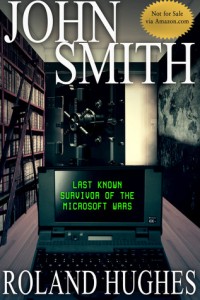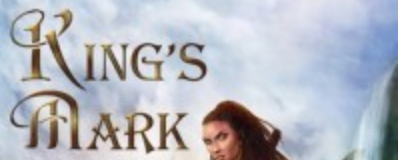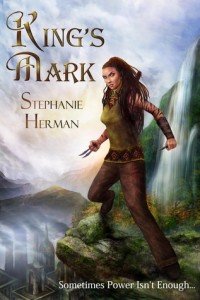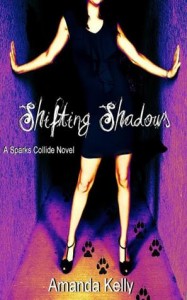 I won a copy of Roland Hughes‘ book, John Smith – Last Known Survivor of the Microsoft Wars in a LibraryThing member giveaway.
I won a copy of Roland Hughes‘ book, John Smith – Last Known Survivor of the Microsoft Wars in a LibraryThing member giveaway.
Description from Goodreads:
What if the Mayans got the start of the end correct because they had survived it once before? What if our written history was just as accurate as the old tale about three blind men describing an elephant? What if classic science fiction writing and television shows each got a piece of it correct, would you know which ones? If your eyes can only see a tiny portion of a collage do you know it is a collage?
Fans of Babylon 5, Star Trek TNG, Battle Star Galactica (the new one) and classic science fiction writing will enjoy the bountiful Easter Egg hunt contained within. When you were a child you learned to connect paper clips or thread beads together to make a necklace. Sit back and watch the beads you’ve had all your life form the picture you could not see. Consider for one second the possibility of the story, then hang onto your mind with both hands while you take the ride.
Review:
Take all of the current conspiracies about governmental Big Brother, immigration, outsourcing, war on terror, biological weapon research, operating system back doors, etc, roll them into one and you have this book. It is a cautionary tale about the dangers of American complacency. Granted it is presented as relevant to the world and pretends to be culturally inclusive, but it is very obviously centred in and focused on America. I almost wonder if the author realises this or if it really was just a case of unintentional ethnocentrism.
I can respect the intent of the book. I really can. Unfortunately, I was insulted on any number of fronts by it. To start with, John Smith is a condescending jerk. Reading his interview with Ms. Krowley felt a lot like witnessing the all-knowing man impart knowledge too heavy for the poor widdle woman to understand. Gag. This is before you even consider all of his sexist comments, which are probably supposed to be some failed attempt at humour. He sure seems to have a low opinion of women considering he claims to have never ‘known’ one. Glad to know he’s ensuring male elitism makes it into the new human cycle. Wouldn’t want to loose that.
At least Keowley had enough of a backbone to come back at him with the occasional ‘stop belittling us,’ but usually demurely responded ‘Oh’, when he responded with some form of “Yes, but…” Despite appearances, he made no effort to actually educate her. He lectured her, patronised her, and generally talked down to her.
She was constantly left with little recourse than to state ‘you’re not making any sense’, to which he would respond by reminding her of her inferiority by pointing out that she didn’t have the knowledge, ability, or frame of reference to understand. But he actually wasn’t making any sense, because he was speaking to her with clipped cryptic statements meant to bait her into admitting her ignorance before he finally deigned to reveal the pertinent information and explanations. It was patronising as well as just plain annoying after a while.
Further, I understand that the people of Earth were meant to have lost a lot of their technology and Smith, therefore, needed to explain things to her. But as a modern person I do understand tech. So I found it really boring to slog through explanations I already knew–what a CD/DVD is and how it’s made for example. And this was a lot of the first half of the book.
Plus, I have no idea how he was supposed to even know all of it if he was 11 when he entered his bunker. Yea, I get it that the family tried to preserve knowledge by including books, etc. But a lot of his biases (against politicians, MBAs, religion, etc) are personal biases and I don’t see how they would have developed outside of experience. It feels very much like he’s just spouting off his own beliefs and presenting them as indisputable facts.
He also spoke in terms of “I had,” “I bought,” I stored,” etc in reference to his bunker. Taking credit for the forthought. Again he was 11 when sealed in. He probably didn’t do anything to prepare. His parents did. He doesn’t deserve to take credit for their preparations. It just adds to his condescension and my dislike of him.
I also have a lot of trouble with the amount of knowledge lost. The book seems to assume that all learning was lost at the end of the cycle. This ignores the fact that obviously some humans survived and with them would be some knowledge. Do you really think the world would forget what god is within 68 years? I’m not making a religious statement here. Just using an example. It’s a pretty ingrained or widespread belief within human. I could see religions falling by the wayside, but the whole idea of a higher power, not so much. Really, not one survivor ever mentioned it to their children? Then, to complicate the matter, Krowley seems to know random things she probably wouldn’t if one accepted the lost knowledge premise. What cloning, or pure grain alcohol, socialism, or the third world are, for example.
I also found it uncomfortable that Smith was relating all this information as if the world should simply be recreated in its old image. Stating things like, “…ships are always referred to as female, while boats as male.” Are, not were. It’s an interesting little tidbit of information, but the woman doesn’t even know what a boat is, so what does it matter if it’s named after a male or female and maybe in the new cycle that won’t be the case. Smith seems completely unable or unwilling to concede that things might be different this time around. Which, I might add, would completely devalue his role as keeper of the knowledge.
The author states on the back of the book that fans of Babylon 5, Star Trek TNG, Battle Star Galactica and classic Scf-Fi will enjoy the book. It’s great that he has a target audience and makes it so apparent, but I see no evidence that this book would appeal to us more than others. It has NOTHING in common with any of the shows. NOTHING. It isn’t even set in space. It doesn’t have a similar plot. It doesn’t have the same character types. It doesn’t have the same feel or tone. It doesn’t inspire the same sense of inspirational awe at the possibility of human accomplishments. It has nothing in it to recommend it especially to the Trekkie fan-base.
The book does remind me a lot of Message from a Hidden Past (by Jos Rogiers) with a less likeable narrator. The writing was perfectly passable and it was well edited. But the question and answer, interview transcript is painful to read. Again, it’s not that it is badly written in any way, but it’s absolutely impossible to loose yourself in. I appreciate the opportunity to read the book, but I can honestly say this one wasn’t for me. My final say: Ethnocentric drivel.



